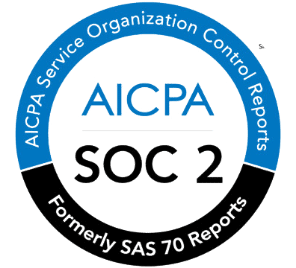Starting a financial planning firm can be an exciting endeavor after working hard to build your knowledge, earn your credentials, and position yourself as a trusted advisor in the financial world.
Now comes the critical step of establishing the processes, tools, and services that will set your practice apart and ensure your clients receive the highest level of long-term financial advice and care.
A critical component of this is estate planning—a service that can set your practice apart and add immense value to your clients.
- Choosing the right practice management systems and software is an important — but sometimes daunting — part of starting a financial planning firm.
- One key element of a good financial tech stack is estate planning software.
- Estate planning can benefit clients of all ages as it is a key element in long-term wealth building, asset protection, and leaving a legacy for future generations.
From selecting the right software for new client intake to making sure you have an arsenal of resources for long-term estate planning, you know you need a wide range of financial planning tools to provide your clients with the most comprehensive approach to financial planning possible.
Let’s look at one piece of your overall financial planning puzzle, estate planning, and learn how this essential part of a client’s overall financial picture is a key factor in building wealth in every stage of their lives.
Built by CFP® Professionals,
for CFP® Professionals
Holistiplan was designed by experienced advisors Roger and Kevin to streamline your financial planning process. Achieve more for your clients in less time
Start Your Free 7-Day TrialThe Big Picture: Why Estate Planning Matters at Every Life Stage
While the term “estate planning” makes most of us think about the distribution of wealth after a person passes away, it’s actually a financial planning tool that is meant to be prioritized early in a person’s wealth building years.
Not only that, but the estate planning process is also not a one-size-fits-all event.
Depending on a client’s life stage, their needs for wealth building and wealth planning will differ significantly.

Whether they’re young professionals just beginning their careers, or retirees thinking about their legacy, you’ll need estate planning specific tools to help them navigate this complex but very important area.
Let’s look at how estate planning needs will change and evolve at different life stages:
Young Professionals (20s and 30s):
At this stage, most individuals are focused on career growth and building their financial foundation.
Estate planning for young clients doesn’t have to be complicated but can help them begin to think about long-term future wants and needs. Having good software that allows you to show them how their assets can be protected and their loved ones cared for will be helpful as they move into other stages of their career and life.
A key focus might be showing them how managing digital assets, personal savings and retirement accounts can all be part of their long term estate plan.
Early estate planning with young clients helps them to begin building a foundation and ensuring their wishes are respected in case of unforeseen events.
Growing Families (30s and 40s):
Clients in this stage are often balancing mortgages, childcare, and career advancement.
Estate planning for young families often starts with document drafting of the basics.
A financial planner can help young families begin their estate planning journey by connecting them with good estate planning attorneys to help draft their wills, healthcare directives, and power of attorney documents. An estate lawyer can also provide guidance on more complex aspects of estate planning, such as establishing trusts to protect and manage assets for minor children.
Once these documents are complete, a financial planner can use estate planning software to help organize everything into a comprehensive and easy to follow estate report plan that helps families keep track of where they are in their estate planning journey and make adjustments as their careers or family needs change.
Peak Earning Years (40s and 50s):
With greater income and accumulated wealth, clients may have more complex estate planning needs at this stage.
While helping an older client with basic financial needs like budgeting may be less of a priority now, other financial concerns like long-term investing, asset management and estate plans may be a much bigger focus now.
This is where having the best estate planning software possible can make a big difference for your clients as well as your practice. Good estate planning will include things like charitable planning, setting up trusts, and strategies for minimizing tax liabilities.
With higher earning potential and accumulated assets, clients in their 40s and 50s often have specific goals that require more sophisticated tools and strategies.
Retirement and Legacy Planning (60s and Beyond):
As clients approach or enter retirement, estate planning becomes centered on preserving wealth and passing it on to the next generation.
This stage may include reviewing and updating wills, managing retirement accounts and distributions, and creating more complex trusts to minimize estate taxes and ensure smooth asset distribution.
Clients may even ask for help when looking for legal professionals or elder law attorneys to assist with specialized concerns, such as long-term care planning, Medicaid eligibility, or safeguarding assets from certain family members or potential healthcare costs.
Elevate Your Practice with Holistiplan
Holistiplan is trusted by thousands of advisors to deliver faster, more valuable financial plans. Start your free 7-day trial and see the difference for yourself
Get Started TodayThe Comprehensive Plan: How to Choose the Essential Software Tools for All Stages of Estate Planning
As a financial planner, you’ve learned that comprehensive estate planning services will require certain types of tools that add clear and actionable insights for your clients — and simplify your administrative tasks in the process.
Choosing the right software to organize and manage estate planning documents is a critical step in creating comprehensive estate planning strategies that lead to your client’s goals and wishes being met.
Here’s a deeper look at the key features good estate planning software should include, helping you provide the most effective services at every stage of your clients’ lives.
1. Comprehensive and Clear Estate Reports

A core feature of estate planning software is its ability to generate detailed yet easy-to-understand reports.
Estate planning involves multiple documents, strategies, and financial projections, which can overwhelm clients. The software should simplify this complexity by presenting all key information in an accessible format.
What to Look For:
- Reports should outline the complete estate plan, including wills, trusts, and power of attorney documents.
- The data must be broken down into sections that clearly address asset distribution, tax strategies, and legal directives.
- Visual aids such as charts and graphs can make complex numbers and projections easier to comprehend for clients who may not be familiar with financial jargon.
Why This Matters: Comprehensive reports help build trust by showing clients exactly where their assets are going and how their estate plan aligns with their goals. It also allows you, as the planner, to identify any gaps or inconsistencies, ensuring the estate plan is thorough.
2. Asset Diagrams for Real-Time Insights
Estate planning revolves around managing assets, and the software should provide tools that visually showcase how these assets interact within the plan.
Asset diagrams are invaluable for helping clients understand the “big picture” of their financial and estate health.

What to Look For:
- Interactive Asset Diagrams: These diagrams should visually represent the client’s asset portfolio, including real estate, bank accounts, IRAs, and investment accounts.
- Scenario Modeling: The software should show how changes in asset values or life events—such as the sale of a property, an inheritance, or market fluctuations—affect the overall estate plan.
- Cascading Effects: When an asset is updated (e.g., a new valuation for a property), the software should automatically recalculate and reflect the impact on estate taxes, retirement distributions, and net worth.
Why This Matters: Clients are more likely to feel engaged when they can see how real-life scenarios will impact their estate. For instance, showing how downsizing a home or reallocating investments could affect their retirement distributions and heirs’ inheritances is a tangible way to illustrate the value of estate planning.
3. Beneficiary Review Tools

Keeping beneficiary information accurate and up-to-date is one of the most crucial aspects of estate planning.
Good software should make beneficiary management seamless and organized, ensuring that all client wishes are implemented correctly.
What to Look For:
- Summary Review of All Beneficiaries: This feature should offer a consolidated view of all transfer-on-death assets, including accounts, life insurance policies, and retirement plans, and who the named beneficiaries are.
- Last-Reviewed Date Markers: A system that automatically tracks and displays when beneficiary designations were last updated ensures that nothing falls through the cracks.
Why This Matters: Beneficiary review tools reduce errors and prevent estate disputes. For example, ensuring a client’s updated marital status is reflected in all beneficiary designations avoids unintended outcomes, such as an ex-spouse being listed on a life insurance policy. These tools also demonstrate your diligence in safeguarding your client’s wishes.
4. Flexibility to Address Life Events
Life is unpredictable, and estate planning software must be equipped to handle changes in your clients’ lives.
Whether it’s a new marriage, the birth of a child, the sale of a business, or updates to tax laws, the software should allow you to easily revise estate plans and simulate future outcomes.

What to Look For:
- Event-Driven Scenarios: Tools that let you map out how life events affect estate planning decisions, such as revising guardianship for minor children or reallocating assets in the case of a divorce.
- Tax Law Updates: Ensure the software is regularly updated to reflect changes in tax regulations, such as adjustments to federal estate tax exemptions.
- Version Control: The ability to track and compare different versions of an estate plan helps you and your client evaluate changes over time.
Why This Matters: Your clients’ circumstances will change, and having the ability to pivot quickly keeps their estate plan relevant and effective. Additionally, showing clients how their plan adapts to life events underscores the value of ongoing estate planning services.
5. Secure Document Management and Collaboration

Estate planning involves sensitive information and collaboration with other professionals, such as estate attorneys and tax advisors. Software that offers secure document management ensures compliance and promotes seamless teamwork.
What to Look For:
- Data Encryption and Secure Cloud Storage: Protect your clients’ sensitive financial and personal information with industry-standard encryption.
- Collaboration Features: The ability to share documents with clients, attorneys, and other professionals in a secure environment streamlines the process.
Why This Matters: Clients expect their personal information to remain secure, and collaborative tools enhance efficiency when coordinating with other professionals. These features also improve your workflow and help establish your firm as modern and tech-savvy.
6. Intuitive Workflow and Client Portal Access
The best estate planning software not only makes your job easier but also enhances your clients’ experience. An intuitive workflow ensures that even complex tasks can be completed smoothly, while client portals provide transparency and accessibility.

What to Look For:
- Customizable Workflow: Features that allow you to tailor processes to your specific practice, such as setting up automated reminders for annual estate reviews or milestone planning sessions.
- Client Portals: A portal that lets clients view their estate plans, asset summaries, and progress updates in real-time adds transparency and encourages engagement.
- Mobile Compatibility: Software that works seamlessly across devices ensures accessibility for both you and your clients.
Why This Matters: Streamlined workflows save time and reduce errors, while client portal access builds trust by keeping your clients informed. Modern, user-friendly software gives your practice a professional edge that sets you apart from competitors.
When choosing estate planning software, make sure you focus on tools that enhance your ability to create personalized, flexible, and comprehensive plans for your clients.
By prioritizing features like clear estate reports, real-time asset diagrams, and up-to-date beneficiary reviews, you equip your practice to meet the diverse needs of clients at every stage of life.
Investing in the right software is an investment in not only your clients’ needs, but the long-term health of your financial firm as well.
Efficiency Meets Value in Financial Planning
Holistiplan bridges the gap between speed and quality, helping advisors like you deliver greater value to every client
Invest Wisely…Invest in Holistiplan
When it comes to estate planning, having the right tools can make all the difference for your practice and your clients.
Holistiplan is tax and estate planning software that simplifies the complexities of financial planning, empowering you to provide exceptional client service while streamlining your workflow.
With features that enhance asset protection, safeguard sensitive client data, improve client communications, and optimize estate task management, Holistiplan ensures that every aspect of your estate planning process is efficient, secure, and thorough.

By offering an efficient and effective solution to tax and estate planning, Holistiplan can be the perfect addition to your comprehensive financial planning tech stack.
Make the smart investment for your business and your clients—choose Holistiplan today!





